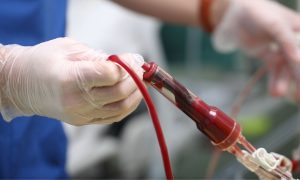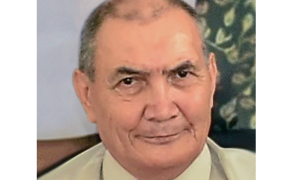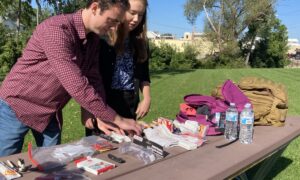DOCTORS were forced to let a pregnant woman and her unborn child die in hospital after the mother refused a blood transfusion because she was a Jehovah’s Witness.
The tragic and avoidable case in Sydney has raised serious questions over the responsibilities of the medical profession to a patient and to a foetus.
The 28-year-old was almost seven months’ pregnant when she was found to have acute promyelocytic leukaemia — and abortions in NSW are only available up to 20 weeks.
More than 80 per cent of pregnant women with this cancer will go into remission with the right treatment, and a foetus is likely to survive, but this woman’s decision meant staff at the Prince of Wales and Royal Hospital for Women in Randwick had to watch her die.

In a report on the case published in the Internal Medicine Journal, haematologist Giselle Kidson-Gerber and Dr Amber Biscoe said the woman was likely to bleed to death if she had a Caesarean without a blood transfusion. Without the surgery, she lost the baby, and then suffered a stroke and multi-organ failure and died.
Steve Parnis, vice-president at the Australian Medical Association, told news.com.au that doctors cannot force a patient to accept treatment, even if they are pregnant.
“If a person is an adult, no, if they’re not suffering from something that diminishes their capacity to make a decision, like a mentally debilitating illness, drugs or severe infection.
“What you do have is an obligation to give the patient all the information so they know about all possible outcomes.
“When we talk about care of an unborn child, the best option is to give the mother the best possible care. We have to recognise her autonomy.”
Dr Kidson-Gerber told the Sydney Morning Herald she could understand the woman’s decision as a Christian herself, but it was very hard for the obstetricians to watch in a country where they “rarely see people die, or make a decision that will hasten death”.
While there are only a handful of cases like this in Australia each year, developments in healthcare could make a conflict of interest between mother and foetus more common.
And once a child is born, similar issues can still arise, if parents refuse treatment for a child not yet old enough to make decisions for themselves.
“In cases where the child requires lifesaving treatment, like an emergency blood transfusion or similar, we may have to seek guardianship,” said Dr Parnis.
“It’s incredibly difficult and we would do it reluctantly. I’m not aware that most doctors would have the stomach to take the sort of measures that would force a major blood transfusion on a Jehovah’s Witness, but if the risk of not transfusing was far outweighed by the potential benefits, we would have to consider it.
“If any alternatives were more acceptable to the patient we would explore them — transfusion has its own risks.”
http://www.news.com.au





